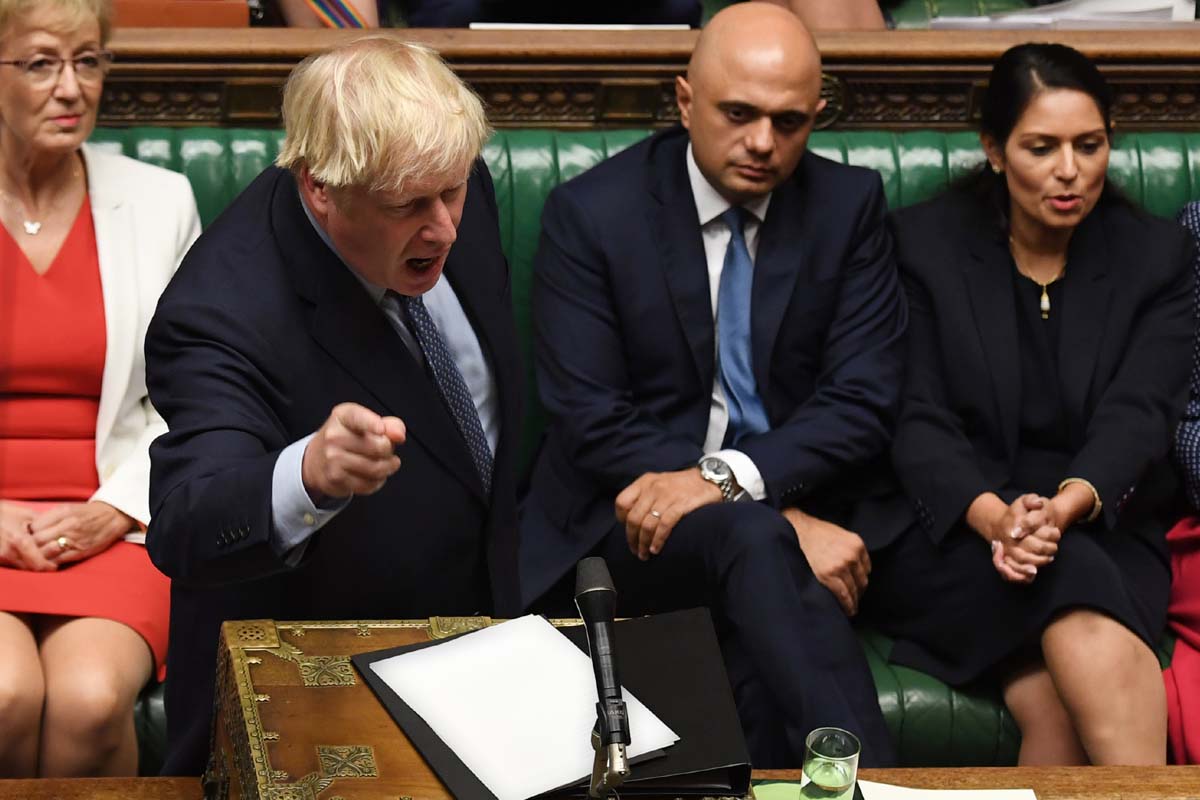End of Life
In the tapestry of Britain's social fabric, the conversation around assisted dying emerges as a poignant reflection of evolving values and aspirations for individual autonomy.
The lame duck Prime Minister has no majority in Parliament, has lost control of the Commons, is unable to command its confidence, and is forced to accept laws drafted by his opponents.

A handout photograph released by the UK Parliament shows Britain's Prime Minister Boris Johnson (C) gesturing while answering questions on the proroguing of Parliament, in the House of Commons in London on September 25, 2019, after the Supreme Court ruled that it was "unlawful, void and of no effect" Britain's parliament resumed on Wednesday after the Supreme Court ruled that Prime Minister Boris Johnson's order to suspend it was "unlawful, void and of no effect". Johnson, who has vowed to press ahead with his plans for Brexit on October 31, was due to address MPs later on Wednesday. (JESSICA TAYLOR / UK PARLIAMENT / AFP)
It has been a resounding rap on the knuckles, verily the start of an exceptionally crucial chapter in Britain’s constitutional history. It is a chapter that could turn out to be more exciting than Brexit per se. Tuesday’s verdict of the Supreme Court is fairly explicit on the point that Boris Johnson is guilty. Yet he is unlikely to step out of 10 Downing Street any time soon. The initiative to dispense with legislative scrutiny by the Prime Minister and his cabal within the Conservative party has backfired, lending a new dimension to the Brexit imbroglio. The court has stopped them in their tracks.
The certitudes of democracy have thus been upheld after the cabinet manual’s rule that the Queen “should not be drawn into party politics” was broken by the Prime Minister and no less. It was he who advised the monarch to issue an order in council to prorogue Parliament for five weeks. That order was declared “unlawful, void and of no effect” by all the eleven judges of the Supreme Court. Which reaffirms the unanimity of the Bench as it pronounced the most significant constitutional judgment in recent times.
One could argue that any Prime Minister with honour would have resigned under such circumstances; but not so Mr Johnson. Brexit must seem to be of lesser moment than the fact that the head of government is now pitted against the Queen of England. It is not often that the United Kingdom has witnessed so grave a constititional crisis. The government’s decision to disregard convention was taken to evade scrutiny by MPs at a moment of constitutional and political crisis. In the net, the legislature will resume its functions very shortly; the executive has been shown its place; and the nonagenarian monarch has made it implicitly clear that it is Buckingham Palace that shall dictate the terms of engagement, as it has done historically.
Advertisement
Well might the narrative change as the House of Commons reconvenes. Lady Hale, president of the Supreme Court, embedded the court’s argument upon the foundational principle of a constitutional monarchy, first articulated in 1611 by the jurist Sir Edward Coke, notably that government “hath no prerogative but that which the law of the land allows”. She has been emphatic on the point that Mr Johnson’s “advice to the Queen was illegal”. Ergo, it will be hard to escape the conclusion that Mr Johnson has betrayed ignorance of British history.
The lame duck Prime Minister has no majority in Parliament, has lost control of the Commons, is unable to command its confidence, and is forced to accept laws drafted by his opponents. A month before the Brexit deadline, the Supreme Court and the monarchy have won the first round. Britain cannot afford to lose even if Mr Johnson wins the election ~ the third in as many years. The parable to be drawn must be that a Prime Minister who has acted so unlawfully ought not to remain in office. As Oliver Cromwell told the Rump parliament in 1653 ~ “In the name of God, go!”
Advertisement